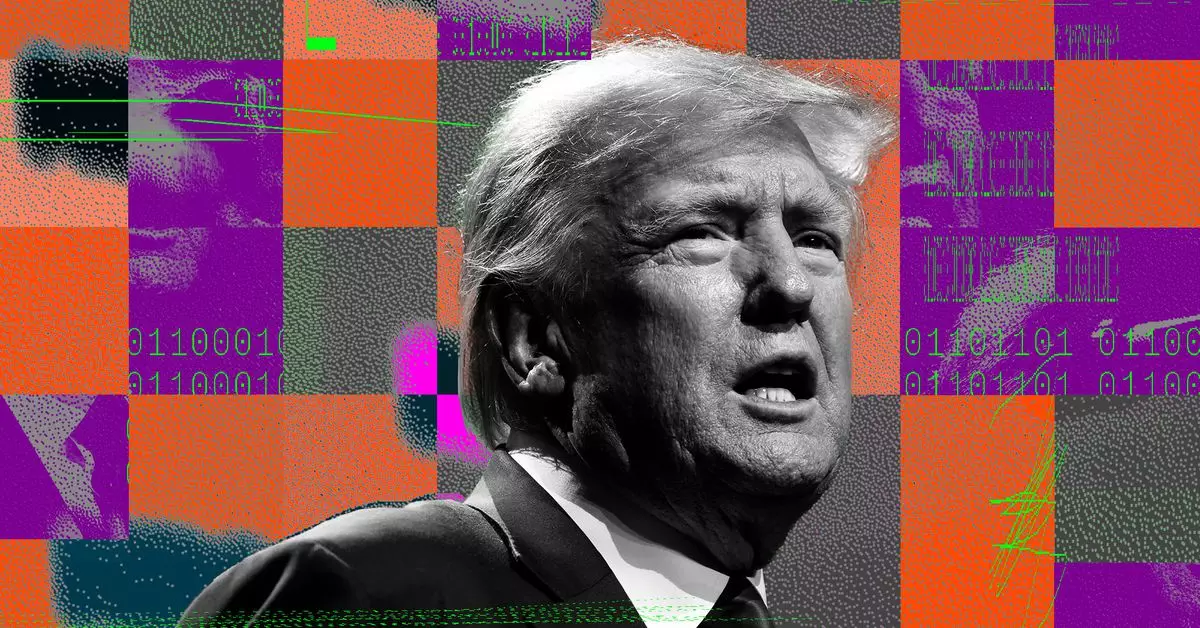The future of TikTok has become a focal point of political maneuvering as former President Donald Trump seeks to leverage his unique position to negotiate a deal that could protect the popular social media platform from an impending ban in the United States. This scenario showcases the intricate interplay between technology, politics, and individual rights, particularly concerning the First Amendment.
In an amicus brief submitted to the Supreme Court, Trump claims he possesses the necessary acumen and mandate to negotiate a solution that would prevent TikTok’s total ban. This argument hinges on his assertion that he alone has the skills to broker a deal, ostensibly due to his experience as a businessman and his electoral support. The assertion reflects a greater trend where political figures assert their business backgrounds as qualifications for managing technological crises, blurring the lines between governance and business.
This situation becomes more complex with the Supreme Court’s decision to hear arguments related to a congressional bill that intends to ban TikTok on national security grounds. Such legislation raises important questions about the balance between national security and First Amendment rights, suggesting that the outcome could significantly impact not only TikTok but also the broader landscape of social media regulation and censorship.
The proposed bill grants the President considerable discretion to delay enforcement if there are ongoing negotiations aimed at ensuring that TikTok is not dominated by its Chinese parent company, ByteDance. This decision underscores the tension between national interests and individual freedoms, illustrating how legislation can inadvertently encroach on personal expression and access to diverse viewpoints. The looming January 19th deadline adds urgency to the negotiations, as it coincides with the conclusion of Trump’s transition period, raising questions about the realities of political continuity and policy implementation.
In his brief, Trump argues that allowing him the opportunity to negotiate would circumvent the need for a Supreme Court ruling on a complex First Amendment issue. This challenge speaks to larger concerns about how governmental overreach might impact free speech in the digital realm, particularly as social media remains a critical platform for political discourse and civic engagement.
While Trump has yet to disclose the specifics of his proposed deal for TikTok, it is expected to involve significant divestment of ByteDance’s ownership in the company. The premise of such negotiations rests on a deeper understanding of how technology companies operate within the global marketplace and the implications of foreign ownership on perceived national security. The call for a potential sell-off reflects a growing paranoia around data privacy and the security of American users, further complicated by the political narrative surrounding China and its tech operations.
Interestingly, Trump cites his own substantial following on TikTok—as well as his ownership of Truth Social—as indicators of his unique insight into the importance of TikTok as a medium for free expression. This highlights the duality inherent in politicians’ relationships with social media; while they may criticize platforms for their foreign ties, they simultaneously utilize these platforms as essential tools in their political arsenals. This reflects a broader cultural phenomenon where social media serves both as a rallying point and a battleground for conflicting ideologies.
Despite Trump’s maneuvering, significant political pressure remains for a TikTok ban. Prominent figures, including senators and representatives from across the political spectrum, are backing petitions urging the Supreme Court to dismiss TikTok’s appeals. This indicates that there is a substantial divide in political opinions on the platform, complicating Trump’s efforts to navigate the issue.
On one hand, some lawmakers view TikTok as a threat to national security, while on the other, there are those who see it as a vital part of modern communication that should not be hastily banned. The interplay of public sentiment, political pressure, and the evolving governance of technology presents a complex landscape where the stakes are higher than ever.
As negotiations continue and the deadline approaches, the outcome will not only determine the fate of TikTok in the U.S. but will also set important precedents for how technology and politics intersect in the digital age. The resolution of this issue could either affirm or reshape the principles of free expression in the context of rising national security concerns, marking a pivotal moment in the ongoing dialogue surrounding technology’s role in society.

